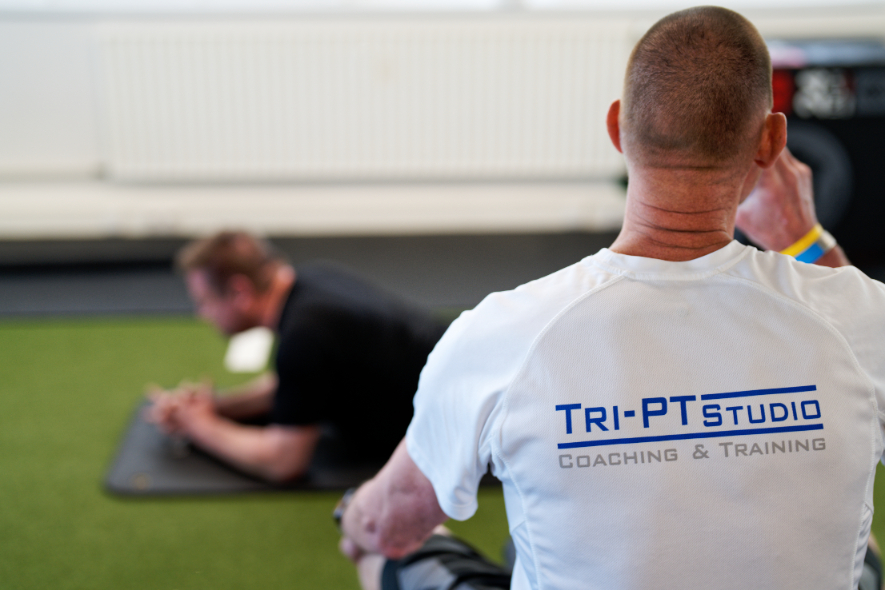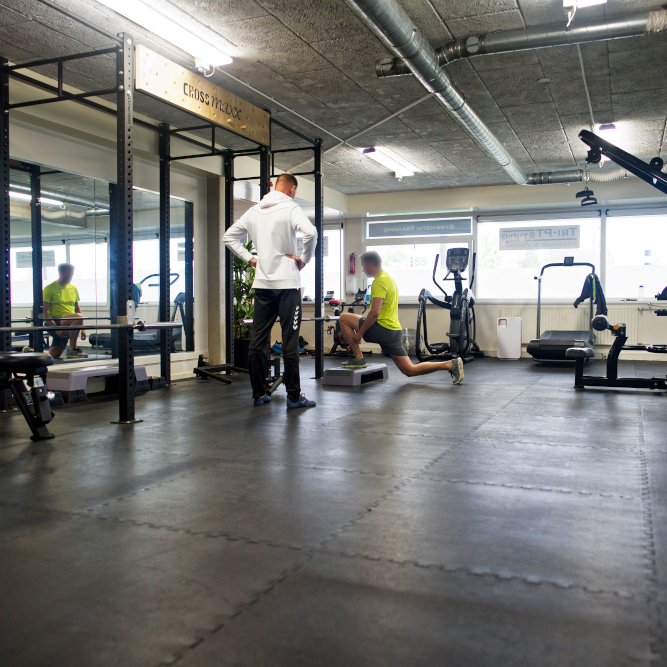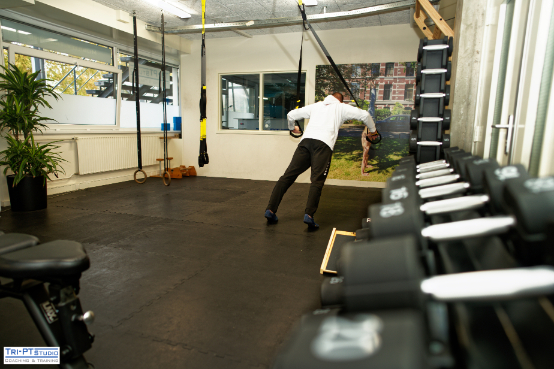There are several reasons why endurance athletes, such as triathletes and marathon runners, benefit from strength training. In this article, we dive into seven benefits of strength training for endurance athletes. Would you prefer an immediate answer to your endurance sports question? Then get in touch with Tri-PT Studio.
1. Improved muscle strength and endurance
Strength training helps build muscle strength, which improves performance during endurance sports such as running, cycling and swimming. Stronger muscles can work more efficiently over longer periods of time, which is ideal for endurance athletes. This ultimately leads to more endurance.
2. Increased efficiency
Strength training allows muscles to become more efficient in their use of energy. This means endurance athletes use less energy for the same effort, which helps them go longer and faster without premature fatigue.

3. Improved body composition
Strength training helps maintain or increase muscle mass and reduce body fat. Better body composition can contribute to improved performance and greater efficiency
during endurance sports activities.
4. Injury prevention
Stronger muscles, tendons and joints can help reduce the risk of injury. Strength training strengthens the body’s support structures, reducing the risk of overuse and acute injuries.
5. Better posture and technique
By strengthening core and stabilising muscles, endurance athletes can improve their posture and technique. This is crucial for efficient movement and can contribute to better performance and less fatigue.

6. Accelerated recovery
Strength training can promote recovery after exercise by improving blood flow and the supply of nutrients to muscles. This can help recover faster between workouts and competitions.
7. Mental benefits
Strength training can also contribute to mental resilience and self-confidence. Seeing physical progress and overcoming strength training challenges can positively impact mental preparation and performance in endurance sports.
In short, strength training is an essential part of a balanced training programme for endurance athletes, as it not only improves physical capabilities, but also contributes to injury prevention and general well-being.







